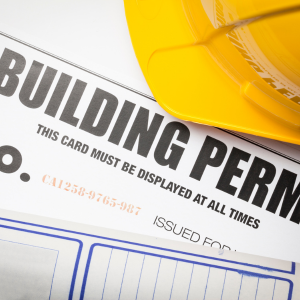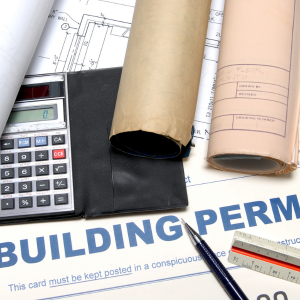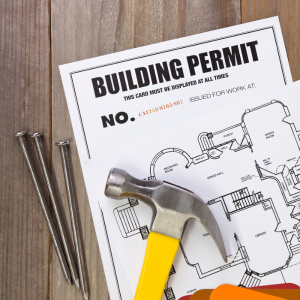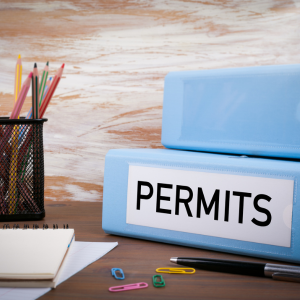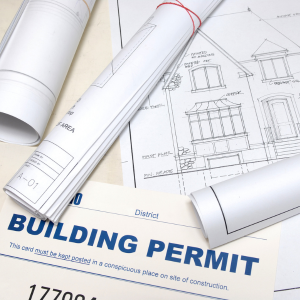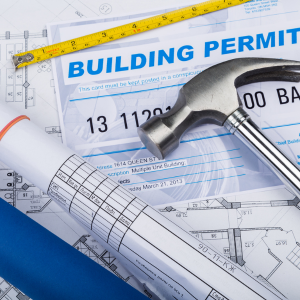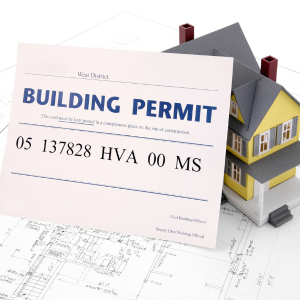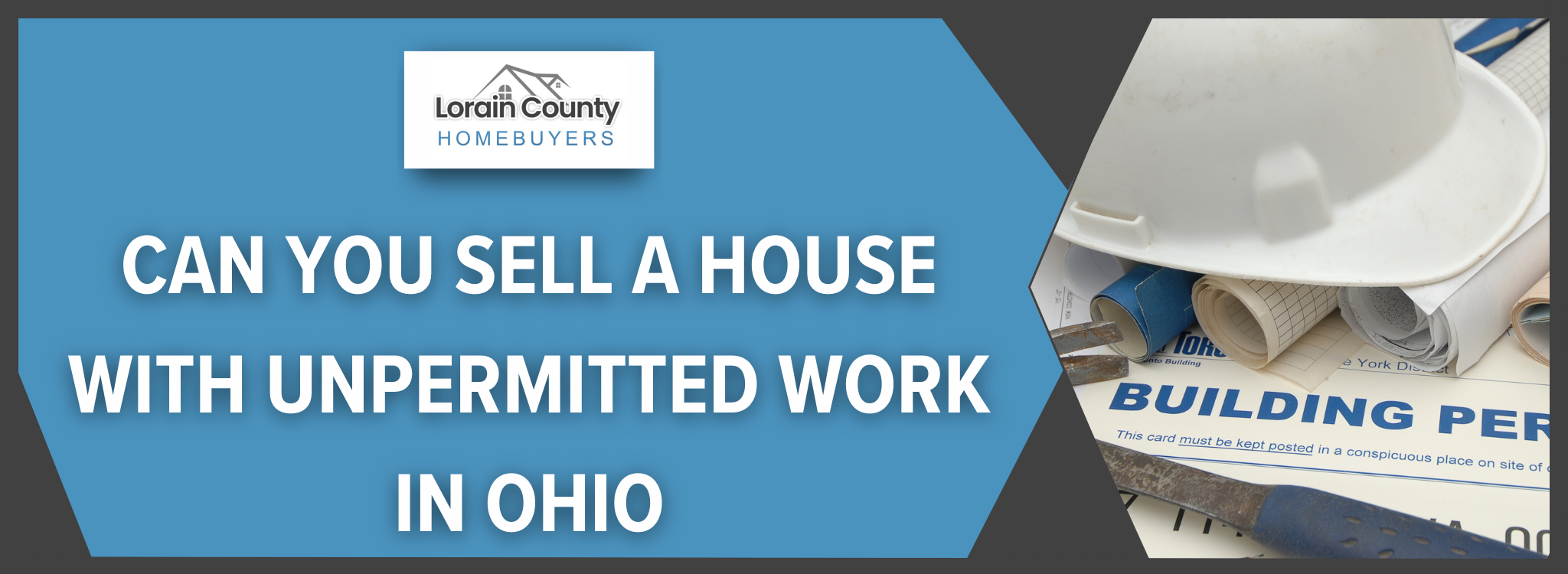
What Makes a Home Improvement Unpermitted?
How do permits impact home improvements?
You should know about construction permits if you want to change your home. Getting these permits ensures that your project follows the rules set by the local government. These rules keep people and buildings safe. In Ohio, renovations must follow the rules set by the state building code. If you don’t get a building permit, you might break the Ohio building code and be fined. Work that isn’t allowed can also make it harder to sell your home since buyers need to know that all changes are legal in their area.
Which home projects usually require permits?
For many home projects, you need to get building permits. Building codes say you need a permit to make significant changes like adding rooms, doing major electrical work, or updating the plumbing. Changing your home without a license in Ohio can be dangerous because it might not meet Ohio’s building codes. Check the Ohio construction permit rules before you start any project to stay out of trouble with the law.
Are all unpermitted works considered illegal?
Not all work that isn’t allowed is illegal, but it can get you into legal trouble. People might not notice small changes, but bigger projects that don’t have permits can break Ohio real estate and property laws. If this work is found, it might be fined or taken down. Talking to a lawyer who knows the local laws can help you understand work that isn’t allowed.
Risks of Selling a House with Unpermitted Work
What legal issues can arise?
It could be illegal to sell a house without a permit if work has been done on it. Ohio law says that sellers must tell buyers about changes that aren’t allowed. People may sue you if you don’t. Knowing the Ohio seller disclosure rules can help keep things clear and out of court after the sale. These risks can be cut down, and a real estate lawyer can ensure that local laws are followed.
How does unpermitted work affect property value?
Work that isn’t allowed can lower the value of a property. Buyers might see it as a problem and make lower offers because they are worried about the law and money. In Ohio real estate deals, work that isn’t allowed can lower the value of a home and scare away buyers, slowing the sale process. Before you put your house on the market, fixing any work that wasn’t allowed is a good idea.
Can unpermitted work delay the closing process?
Yes, work that isn’t allowed can slow down the closing process of a real estate deal. A title search could find problems with additions that aren’t allowed, slowing the selling process. Following Ohio’s rules for selling a home and fixing any work that wasn’t allowed can make the closing process go more smoothly.
Awareness of these possible problems helps homeowners make wise choices about doing work that isn’t allowed. To get more information, you might want to talk to Lorain County Homebuyers about these problems.
Steps to Rectify Unpermitted Work Before Selling
Should you hire a contractor or do it yourself?
When dealing with unpermitted work, you must first decide whether to hire a contractor or do it yourself (DIY). A contractor can make sure the repairs meet local building codes, reducing future legal issues. They usually have experience with permits and regulations, making the process faster. But hiring one might cost more.
If you choose DIY, you could save money. However, you must understand home improvement projects well and be responsible for ensuring the work is up to code. Consider the size of the project, your skills, and the costs before deciding.
How do you obtain retroactive permits?
Getting retroactive building permits is crucial for legalizing unpermitted work. Start by contacting your local building department to learn their requirements. Disclosing all unpermitted work from the start is essential, as honesty will help you get the necessary permits. An inspection may be required to confirm that the work complies with current standards. If changes are needed, you must make them before a license is issued. Legal recourse might be required if disputes arise, but fixing the issue early can help avoid complications.
Is it worth making corrections before listing?
Fixing unpermitted work before listing your property can significantly improve its value. Properties without violations are more attractive to buyers and can ease the home inspection. While these fixes cost money upfront, they can lead to a higher sale price and fewer delays. To make wise choices, sellers should estimate how much these corrections might boost property value and compare this to repair costs. Following the rules makes the property more marketable and protects against future problems.
The Role of Local Building Departments in Unpermitted Work
How can you verify if work is permitted?
Check the building department’s records and the local building codes to see if you can work on your home. Check to see if your property has ever had a building permit or been inspected. Missing records could be a sign of unauthorized work. It’s essential to check with the building department to ensure you’re following the rules and avoid getting fined or having to make changes.
What records are maintained by local building departments?
Local building departments keep detailed records, such as construction permits, inspection reports, and proof of compliance with building codes. These records verify that past work was authorized and met current standards. People can get this information at the office that gives out building permits. It can also be used as proof in court or when buying a house.
What should you do if local codes have changed?
There may be new laws in your area that affect your case. You need to know those laws and how they affect your case. Talk to the building department to determine if you need to worry about legal issues. Also, make sure that any work you do follows the new rules. Before the sale, this could mean changing the house or getting more permits to ensure it meets all the rules. If you know the rules in your area, you can keep your home’s value and stay out of trouble.
Negotiating the Sale of Homes with Unpermitted Work
Selling a house with unpermitted work can be tough, but if handled right, it might also be a chance to close a deal. Potential buyers may worry, but knowing how to negotiate well can help your Ohio real estate transaction.
Can Unpermitted Work Be Used as a Bargaining Chip?
Negotiation is key when selling a house with unpermitted work. You can use these additions to change the price or sale terms. Point out any unique design features that the unpermitted work adds. Be honest about the risks, such as legal issues or future compliance with Ohio’s building codes. Open discussions can lead to offers and a deal that suits both parties.
How Do Potential Buyers Perceive Unpermitted Work?
Potential buyers are often cautious about homes with unpermitted work. During a home inspection, they can check these aspects closely. In Ohio, buyer inspection rights let them assess the home’s value impact. Unpermitted work might lower the perceived value, affecting the offer. Addressing these concerns and providing information can help reduce negative views.
Are There Ways to Offer Assurances to Buyers?
To ease buyer worries, Ohio sellers must comply with legal disclosure obligations. This means revealing any unpermitted work according to Ohio’s seller disclosure requirements. Offering assurances through formal documents and legal guarantees can build trust. Ohio Realtors may suggest pricing strategies, clear legal papers, or hire a third-party expert to check the work for quality and safety.
Legal Considerations for Sellers
It’s important to know the law in Ohio if you want to sell a house while doing work that you’re not supposed to. If you handle things right, these issues won’t come up again, which is good for both the buyer and the seller.
What Disclosures Are Required by Ohio Law?
People selling their homes in Ohio have to fill out a form called the Ohio Property Disclosure Form. This form has details about any work that hasn’t been approved. This legal requirement makes things clear and can help settle any arguments that might come up. You should read this important paper because it lists problems, such as not meeting Ohio building codes.
How Can an Attorney Assist with Unpermitted Work Issues?
A lawyer can be beneficial when it comes to building without a permit. What legal options do sellers have in Ohio? They know the law and can help sellers figure it out. They can tell you how to deal with problems arising from work that wasn’t authorized and how to meet legal needs for disclosure. Because they know the rules, the deal will likely go smoothly, and there won’t be any legal problems after the sale.
What Should You Document About Unpermitted Work?
For legal reasons, keeping track of work that isn’t allowed is essential. When people sell their homes, they should keep their records, like legal papers, proof from home inspections, and conversations with a real estate professional. It can be easier to negotiate if you fill out paperwork like the Ohio disclosure document before you put your house on the market. If you remove any work that wasn’t allowed before the sale, the home might look better and be worth more on the market.
Working with Real Estate Professionals
How can real estate professionals help manage unpermitted work?
A real estate expert can be a helpful partner when you have a house that needs work that isn’t allowed. Real estate professionals in Ohio who know how to handle deals can help you through negotiations and address buyer concerns. They know how to talk to people about your property and ensure that both the seller’s and buyer’s needs are met.
What expertise do you need from an expert?
Getting the right real estate professional is very important when doing work that isn’t allowed. You need a real estate professional who knows about Ohio real estate and the rules about disclosure. A skilled expert ensures that all critical information about the property’s condition is shared clearly, including any work that hasn’t been approved. They need to be able to negotiate well to get good terms on the sale.
Are some experts specialized in dealing with unpermitted work?
Yes, some real estate professionals specialize in homes that have construction that isn’t allowed. They know the laws in Ohio that can be broken by doing work that isn’t allowed. They can tell you how to handle these issues legally so that you follow the rules in your area and make the transaction go smoothly.
Alternative Options for Selling
Is selling “as-is” a viable option?
Selling a property “as-is” might be an option if handling unpermitted work is too hard. Ohio’s home-selling rules allow this, but you must understand the risks. Sellers must still follow Ohio’s real estate disclosure laws, telling buyers about known issues like unpermitted work. While this can speed up the sale, it might affect the selling price.
How does selling to investors differ from traditional sales?
Selling to investors is different from traditional sales. Investors often buy homes with unpermitted work more easily, usually paying cash, simplifying the transaction. The Ohio housing market has many cash home buyers ready to buy homes needing renovations. This may skip some formalities of traditional sales, leading to a quicker closing.
What are the pros and cons of each method?
- Selling “as-is” Pros:
- Faster sale.
- Avoids expensive repairs.
- Attracts cash buyers.
- Selling “as-is” Cons:
- Possible lower price.
- Limited buyer pool due to disclosure of unpermitted work.
- Selling to Investors Pros:
- Cash offers mean quick closings.
- Attracts buyers ready for renovations.
- Fewer negotiation issues.
- Selling to Investors Cons:
- May still get lower prices than a fully permitted home.
- Limited to certain types of buyers.
Understanding Ohio’s selling process and real estate laws, including buyer inspection rights, is essential. A balanced view of these options helps you decide the best course based on your situation and goals. If you need help, Lorain County Homebuyers offers support during your real estate process.
Impact of Unpermitted Work on Financing
Can unpermitted work affect mortgage approval?
Getting a mortgage is crucial when buying a home. Unpermitted work can cause problems with this. Lenders see it as risky because it might lower the property’s value. This could lead to legal issues or expensive repairs, risking mortgage approval. Home buyers should check for these risks during a real estate transaction to ensure smooth financing.
How do lenders deal with unpermitted work risks?
Lenders handle unpermitted work carefully. During appraisal, they check how undisclosed work affects property value. If a home inspection finds unpermitted work, lenders usually want it disclosed. Depending on the issue, they might ask for the work to be fixed or for retroactive permits. Understanding how lenders look at these risks helps buyers handle potential problems in real estate transactions.
Are there specific loans for homes with unpermitted work?
Some loans are more flexible for homes with unpermitted work. Specific lenders offer loans that cover retroactive permits and legal issues. In Ohio, knowing local real estate laws and the costs of these fixes is essential. Exploring different financing options helps homeowners address unpermitted work in line with state rules.
Future Home Buying After Selling a Home with Unpermitted Work
What lessons can be learned from the process?
Selling a house with work that isn’t allowed teaches you important lessons. To avoid problems in the future, homeowners learn to fix and report any projects that aren’t allowed. Knowing Ohio’s rules for selling helps sellers get ready and handle risks. These lessons help sellers make better real estate deals in the future.
How can unpermitted work be avoided in future purchases?
Home buyers should focus on getting a thorough home inspection to avoid problems with work being done without a permit. It is imperative to follow local building codes and Ohio property laws. If you know Ohio’s building permit rules, you can avoid getting in trouble with the law later. When you buy something, research is vital to protect your money and peace of mind.
Are there preventative steps for future renovations?
Ohio’s building codes must be followed when planning renovations. By hiring a licensed contractor who knows the local permit rules, you can avoid breaking them. It’s essential to check Ohio construction permits before you start working. These steps help you stay safe and ensure that home improvements raise the value of your home without breaking the law.
FAQs:
What are the risks of selling a house with unpermitted work in Ohio?
Selling a house with unpermitted work in Ohio can be risky. It might lead to legal problems and potential lawsuits. Buyers may worry about safety issues and future costs, which could lower the selling price. Make sure to disclose any unpermitted work to avoid disputes later.
How does unpermitted work impact the Ohio housing market?
Unpermitted work can lower a home’s value in the Ohio housing market. Homes with this issue might attract fewer buyers or require a lower asking price. A home inspector can find these issues and negotiate them during the sale. Fixing them early can help keep your home competitive.
Can I sell my Ohio property as-is if it has unpermitted work?
Yes, you can sell your home as-is, but you must tell buyers about any unpermitted work. Not disclosing this can cause legal problems later. Selling as-is might mean accepting a lower offer, but it can speed up the sale without costly repairs.
What steps should I take to address unpermitted renovations in Ohio?
Try to get retroactive permits from the local building office to fix unpermitted renovations. This means you might need to have the work inspected and fixed to meet current codes. Talk to a realtor or real estate attorney for legal guidance.
How do Ohio laws affect unpermitted additions to a home?
Ohio laws require all home additions or renovations to follow local zoning laws and building codes. Unpermitted additions might need to be fixed or removed, which can increase the cost and time needed to sell your home. Understanding these laws can prevent problems during the sale.
Why is conducting a home inspection for unpermitted work in Ohio important?
A home inspection can find unpermitted work that isn’t obvious. Knowing about this work helps both sellers and buyers understand its impact on home value and necessary repairs. This allows for negotiation before finalizing a sale.
What strategies can help sell a home with an unpermitted basement conversion in Ohio?
When selling a home with an unpermitted basement conversion, disclose this early and provide estimates for permits or repairs. Being honest builds trust with buyers. Hiring a real estate agent familiar with Ohio property laws can make the sale smoother.
How can unpermitted work affect a buyer’s mortgage application in Ohio?
Unpermitted work can be a concern for lenders and might impact a mortgage application. Lenders want to ensure the property meets local codes to protect their investment. Fixing unpermitted work in advance or considering cash buyers can help ease these concerns.
Key Insights
- Selling a house in Ohio with unpermitted work involves important factors like potential buyer risks and effects on home value. Understand how these issues impact Ohio property sales and learn how to handle unpermitted renovations.
- Disclosing any unpermitted work when selling a house in Ohio is essential. Not doing so can lead to legal action, affect the sale price, and result in lawsuits or fines.
- Consider getting retroactive permits for unpermitted projects such as basements or additions. This step can help control costs and reduce risks tied to Ohio building inspection rules.
- Working with a knowledgeable Ohio realtor can offer guidance on dealing with code violations and navigating the property disclosure process. They can help negotiate offers and oversee buyer inspections.
- Ohio homeowners should weigh the costs and benefits of fixing unpermitted work before selling versus selling “as is.” Each option can influence the overall profit from the property sale.
- Knowing Ohio zoning laws and understanding how unpermitted work affects property taxes is crucial. Consulting with legal experts or the building department can offer clarity and help solve any issues.
- Choosing a rent-to-own setup or negotiating a cash home sale might be good options if traditional buyers are put off by unpermitted work. These alternatives can speed up the transaction.
- Work with professional real estate agents who know Ohio property law to increase the chance of a successful home sale. They can provide insights on market trends, buyer expectations, and potential red flags.
- Comprehensive home inspections are key to spotting unpermitted renovations. This helps set realistic asking prices and protects buyers and sellers from future problems.
This information applies to Ohio and its cities, including Lorain, Amherst, and Cleveland. For assistance or questions, please call us at (440) 681-2114 You can also visit our website at Lorain County Homebuyers for more details.


